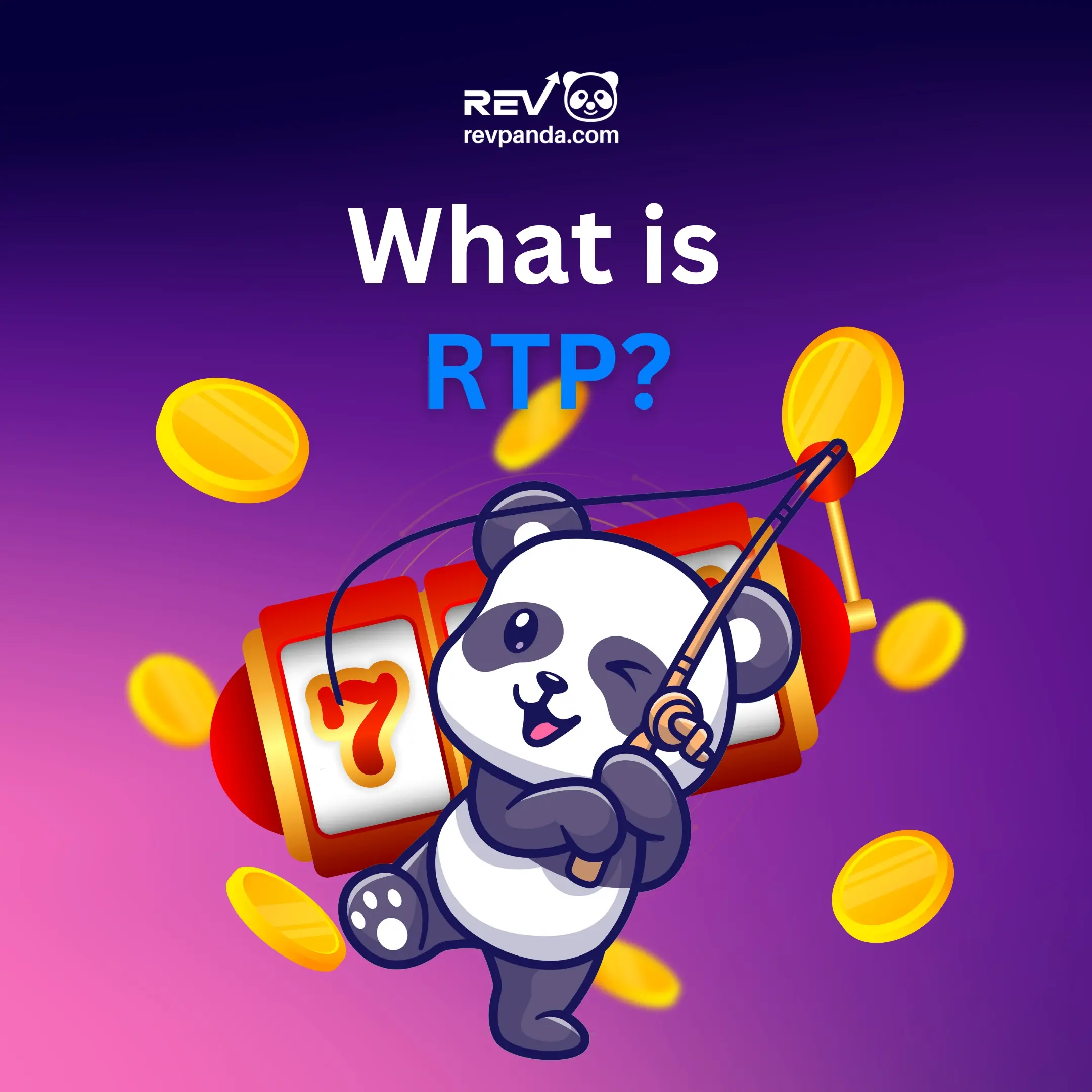
BLOG
Detailed Guide: Understanding Casino RTP and Its Operational Mechanics
Table of contents
Click on a title to jump to a section
RTP and House Edge in Online Casino Games: A Brief Overview
In the realm of online casinos, 'RTP' signifies Return to Player. This percentage mirrors the expected long-term return of a game to its players, although this figure is, on the surface, based on probability. In reality, the RTP represents the actual figures won by players over their gaming sessions.
RTP and house edge are inverse concepts. If a slot features a 97% RTP, the house maintains a 3% edge. This edge represents the casino's advantage—a scenario where a substantial RTP coupled with low house edge boosts player winning prospects. However, short-term outcomes can vary—especially in slots—despite these favorable metrics.
Certain players, aiming for predictability, choose games with reduced variance and frequent minor payouts. These two factors importantly impact gamblers' decisions when selecting online games. EU Online Casinos International online casinos likewise emphasize games with competitive RTPs, ensuring fair and engaging gameplay.
Understanding the RTP Percentage
Casino game developers undertake rigorous tests to verify the theoretical payout ratios for every game. Despite variance between games' RTPs, significant differences might be unnoticeable in immediate gameplay even if two games have similar payout ratios, like 96.00% versus 96.40%.
In betting scenarios, like betting twice on black and red, the results could lead to a 100% RTP if the same color wins both times. Thus, assessing odds accurately requires multiple trials over time. For online slots, RTP is calculated through vast numbers of simulated spins to derive an accurate payout percentage. Here's a simplified RTP calculation formula.
Return to Player RTP = (Total Amount Paid to Players / Total Amount Wagered) x 100%
Imagine receiving €98,000 in payouts from €100,000 wagered:
- RTP = 98,000/100,000 × 100
- RTP = 98%
Types of RTP in Online Casino Games
Online gambling sites feature an assortment of games from top-tier industry developers. Every game specifies its own RTP on its info page—a figure that can be fixed, variable, high, or low depending on the game in question. Let's delve into these RTP types. In games with fixed RTPs, the return percentage remains unchanged, unaffected by which casino you select or when you choose to play. This is typical for most slot machines, both online and in physical establishments.
Fixed RTP
Variable RTP games offer multiple payout percentage possibilities. A prime example is Quickspin's Big Bad Wolf Megaways slot: its standard RTP is 96.05%, increasing to 96.44% when the Buy Feature is utilized. quality online casinos Experienced players favor games with high RTPs due to the significant return over time relative to the money wagered. High RTP slots inherently yield a lesser house edge.
Variable RTP
Games with low RTP, typically under the 96% industry average, often come with a substantial casino advantage. Some progressive jackpot games fit this profile but can provide ample rewards if fortune favors you.
High RTP
Dispelling Myths and Misunderstandings About RTP and Payout Schedules
Low RTP
Each gaming session is distinctly unique, independent of casino RTPs. Players opting for reputable online casinos bearing trustworthy regulatory oversight can expect integrity in gameplay. However, some may harbor misconceptions regarding games' RTP statistics. Let's explore and correct these prevalent myths.
Misconception 1: Casino Operators Can Alter Slot RTPs
A frequent assumption is that operators can adjust RTPs. Indeed, a game’s RTP is typically set by its developer during creation. Games can offer multiple RTP configurations, such as 96%, 94%, or 92%. An example of this would be Wazdan, which provides various options available for selection by casino operators when hosting games. Misconception 2: Increasing Bets Boost the Odds of Winning Elevating your bet size does not impact the house edge or winning probabilities—it's purely a strategy for those willing to take significant risks in hopes of larger wins.
Misconception 3: Newer Games Offer Superior Odds
Winning relies more on luck, irrespective of the game's age. While some players speculatively claim newer games have better odds, games' RTP and payout details from developers offer the right guidance. licensed Wazdan casinos Misconception 4: Progressive Jackpot Games Have Superior RTPs
Progressive jackpots typically come with greater house edges. Thus, these games don't inherently possess superior odds compared to others—they merely offer large win opportunities when certain symbol combinations arise.
Understanding the Impact of Random Number Generators (RNGs) on RTP
For fair play, operators must ensure unbiased outcomes that are genuinely random, as achieved via reliable RNG technology. Leading casinos partner with recognized developers to offer skill-verified games with appropriate RTPs.
RNGs employ advanced software to guarantee unbiased results across slots and casino games. Regardless of wager results—win or lose—outcomes should remain fair. Certified online slots, evaluated by independent agencies, ensure integrity across gameplay.
RTP and Volatility: The Interplays and Effects on Your Game
Volatility, similar to RTP, distinctly affects gaming experiences, indicating potential win frequencies and payout averages. Slot games vary in volatility, from high to low. Let's dissect how differing RTP and volatility levels influence choices and plays.
A cheerful panda interacts with a computer around slot symbols.
Although most online gambling sites Slots with high RTP (96%+) and low volatility promote frequent, albeit smaller, payouts—ideal for risk-averse players. The Blood Suckers slot exemplifies this category at numerous online platforms.
A panda bearing an RTP mention on a chart indicating 'High' for High RTP & High Volatility
High-volatility slots with high RTPs yield larger, albeit infrequent, winnings. It might necessitate considerable time before a winning sequence manifests, as seen in NetEnt's Dead or Alive games.
A jolly panda among coins.

High RTP & Low Volatility
A panda clutching a phone with nearby slot icons. NetEnt casinos today.

High RTP & High Volatility
Games with medium volatility and low RTP lead to sporadic, medium-scale payouts—suited for moderate risk players who do not chase substantial victories, many jackpot slots fall under this category.

High RTP & Medium Volatility
Playing low RTP, high volatility slots involves low-frequency but potentially large payouts. This category targets seasoned players favoring risk, encompassing some progressive jackpots and slot bonuses with high payoffs.

Low RTP & Low Volatility
Delve deeper into the concept of RTP in online casinos to understand how it functions. Learn about leading casinos that feature online slot games with the best payout levels.

Low RTP & Medium Volatility
Enhancing Your Online Business Journey: Conversion Rate Optimisation (CRO) Services

Low RTP & High Volatility
A Detailed Clarification on Casino RTP: How Does It Operate?
Are you curious about what casino RTP is and the way it operates? This comprehensive guide will reveal why grasping the RTP metric in your favourite slot or casino game is critical. Our seasoned experts will also guide you through computing RTP and list the top casino games with superior payout percentages available online.
An Introductory Guide to RTP and House Edge in Online Casino Gaming
In the sphere of online gambling, 'RTP' is synonymous with 'return to player'. Expressed as a percentage, the RTP of an online slot indicates the anticipated portion of money that a game reimburses to players over time. Though based on theoretical probability calculations, the actual RTP denotes what players experience during a gaming session.
Contrasting RTP and House Edge: A slot with a 97% RTP implies a remaining 3% house edge, signifying the casino's advantage. Ideally, players should aim for games with elevated RTP and reduced house edge for better winning odds. Be aware, though, that short-term outcomes can be volatile, particularly in slots.
For players seeking steadier returns, low-variance games offering frequent, modest payouts might be preferable. These two elements substantially sway players' choices in online casino game selections. Numerous
international online casinos highlight games with competitive RTPs to emphasize equitable and rewarding gaming experiences.
Casino game developers rigorously evaluate each game to determine its RTP. Although RTPs fluctuate between games, if you play different games with nearly identical RTPs like 96.00% and 96.40%, you likely won’t perceive much variation in short-term gameplay.
While wagering on black and red might seem equal, encountering the same color consecutively could inaccurately suggest a 100% RTP. To calculate your authentic winning odds, increase the number of bets on both colors. Online slot RTPs are derived from extensive simulations spanning thousands or millions of spins, ensuring a precise payout ratio. Here's a streamlined formula for RTP calculation.
Return to Player (RTP): Computed by dividing the total payouts returned to players by the total sum wagered and multiplying by 100%.
| Slot Game | RTP | Volatility | Game Provider | Casino to Play |
|---|---|---|---|---|
| Blood Suckers | 98% | Low | NetEnt | Golden Panda |
| 1429 Uncharted Seas | 98.60% | Low | Thunderkick | Wolfy Casino |
| Mega Joker | 99.00% | High | NetEnt | MyEmpire Casino |
| Blood Suckers Megaways | 97.66% | High | Red Tiger | Ready Casino |
| Secrets of Atlantis | 97.0% | Medium | NetEnt | Instant Casino |
Imagine players receiving €98,000 in payouts from a €100,000 wagering pool.
The diversity of casino games from
leading software providers offers players varying RTP rates highlighted on each game's info page. Depending on the game, RTPs can be fixed, adaptable, high, or low. Let's delve into these RTP types.
Fixed RTP Games: Consistent return percentages across all casinos, regardless of gameplay timing. Most slot machines, both online and
in physical gambling venues, maintain steady payout rates.
- Variable RTP Games: Offering diverse payout percentages, such as Quickspin's Big Bad Wolf Megaways, where RTP shifts from 96.05% to 96.44% using the Buy Feature.
- Experienced gamblers generally opt for high RTP games, given they promise substantial fund returns over time. Higher RTP equates to reduced house edge.
- Games with low RTPs lag behind the industry average of 96%. Typically, progressive jackpot slots fall under this category, but promise high rewards despite their increased house advantage potential.
- Dispelling the Prevalent Beliefs and Misunderstandings Surrounding RTP and Payout Patterns
Each gaming session delivers a distinct experience, independent of overall casino RTP. Players stand to enjoy fair play if selecting
licensed and regulated online casinos, upholding standards from esteemed regulators. Despite a general awareness of RTP among gamblers, misconceptions persist. Allow us to address some leading myths concerning casino game payouts and RTP.
Misconception 1: Casino Owners Adjust Slot RTPs Freely
